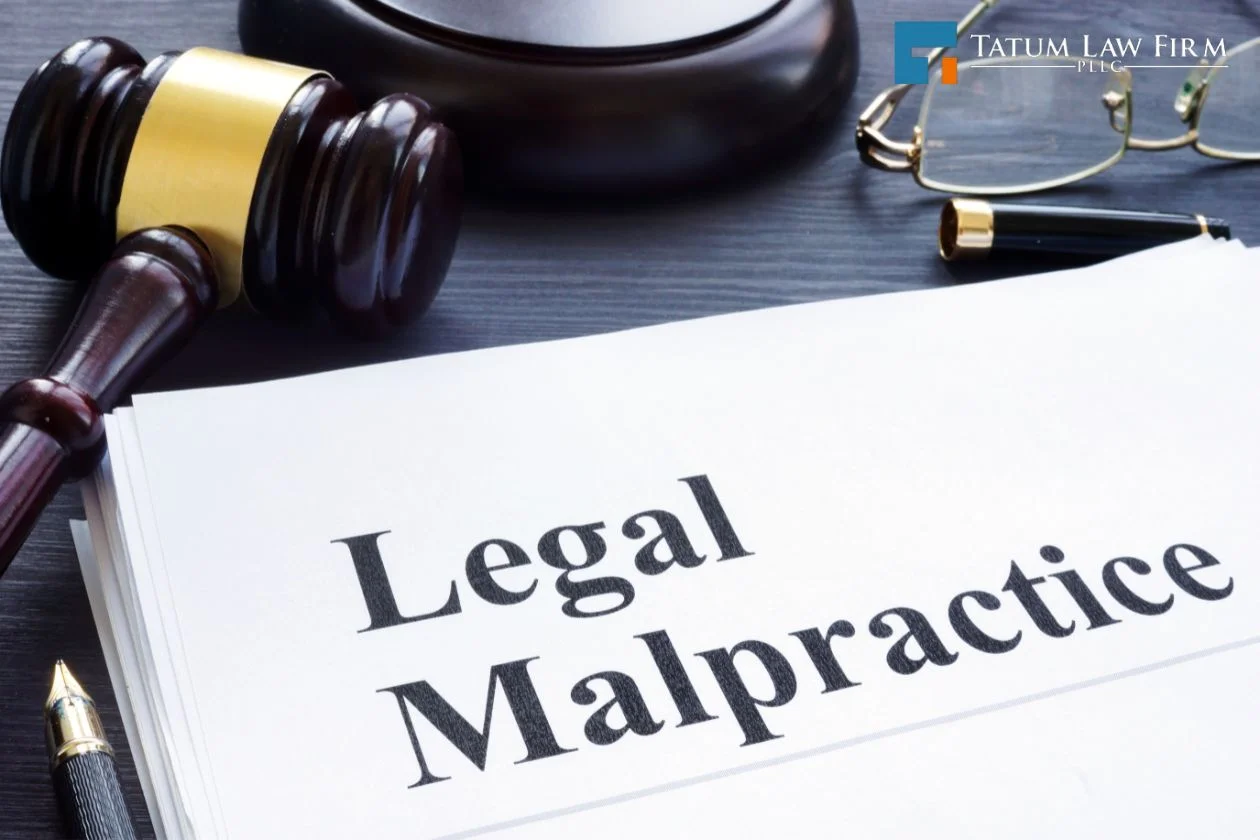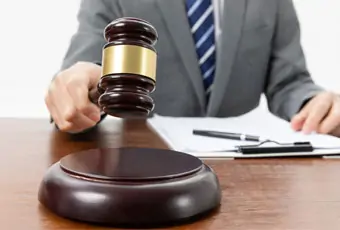Athens Legal Malpractice Lawyer

Athens, GA Legal Malpractice Attorney
The understandably major impact that a legal malpractice incident can have on your life is significant. If you have been wronged by the negligent, intentional, or accidental action of your attorney that has resulted in your harm or damage, it can be challenging to know how to proceed. An Athens, GA, legal malpractice lawyer can provide essential support in seeking justice and restoration for your losses. The Tatum Law Firm, PLLC, is here to help.
You may have just begun to become suspicious of your attorney’s mishandling of your legal matter. Perhaps you have completely parted ways with your attorney due to their negligent work, which has negatively impacted you in some way. If so, you may have grounds to pursue a legal claim against them and seek recovery for your losses. Regardless of the circumstances, you deserve to be heard by an experienced legal malpractice lawyer to discuss your options.
Essential Elements in a Athens Legal Malpractice Case
Legal malpractice is a misunderstood concept by many, as it may seem like a backward idea to pursue legal action against your attorney in Athens, GA. However, there are very serious situations that make this type of action necessary.
Three essential elements must be present for a legal malpractice case to be viewed as legally viable and legitimate. These include establishing a duty of care, providing proof that this duty was breached, and showing a direct link from the breach to the plaintiff’s harm. To better understand this process, it is useful to examine each element in detail.
Establish a Duty of Care
Duty of care is an established legal obligation to act in a way that prevents foreseeable harm and damage to others. In a relationship between a lawyer and their client, there is a legal responsibility on the part of the attorney to perform their role in a manner that maintains a reasonable standard. They must act as any competent attorney would to provide services that protect their client from foreseeable harm or damage.
To prove this duty of care, a plaintiff must have been an official client of the attorney, which is often proven through the attorney/client agreement signed upon working together.
Prove That the Duty of Care Is Breached
The plaintiff must then prove that this duty of care was breached in some way. To breach a duty of care means that the attorney did not uphold their agreement to provide reasonable and competent care for their client. This can happen in a legal malpractice case through a variety of means, such as:
- Failure to meet essential deadlines
- Agreeing to a settlement without their client’s express permission
- Abandonment
- Embezzlement
- Fraud
- Charging excessive fees beyond what the market would justify
Show Causation
The final necessary element of a legitimate legal malpractice case is to show causation between the breached duty of care and the harm a client has suffered. This means that the attorney’s breach of their legal responsibility created the circumstances that ultimately led to their client’s harm, losses, and damages. There must be a provable direct link between these two things.
How a Legal Malpractice Attorney Can Help in Athens
There are several ways that a legal malpractice attorney can support their clients. Below are a few examples of the types of aid they can offer:
- Detailed Investigation: An attorney can perform a detailed and thorough investigation into the details that led to their client’s harm. They can find evidence that proves the essential elements of a legal malpractice case, including the legitimate duty of care, the breach of that duty, and the causation or link between the breached care and their client’s ultimate harm and damage.
- Legal Strategy and Advocacy: Through their detailed understanding of local laws and regulations, attorneys can develop solid legal strategies to employ throughout the case that support their client’s rights. Their legal advocacy is an essential aid that can help win a case.
- Negotiation and Litigation Representation: An attorney can represent their clients in all negotiations and litigation, presenting their case in a clear and skilled manner.
Athens Legal Malpractice FAQs
Q: What Is the Statute of Limitations for Legal Malpractice in Georgia?
A: The statute of limitations for legal malpractice in Georgia is typically four years. This legal deadline is in place primarily to protect defendants from unfair legal action. The timeframe is also intended to prevent a delay in accusations and keep plaintiffs from expending court resources on litigation for long-dormant claims. If you are looking to pursue legal action for a legal malpractice matter, it is essential to do this as soon as possible to ensure that you are within the designated timeframe.
Q: Is Legal Malpractice Insurance Required in Georgia?
A: Legal malpractice insurance is not required in Georgia, but it is strongly recommended as a layer of protection if a claim does emerge. The state Board of Governors allows the purchase of professional liability insurance (PLI) to remain confidential, and disclosure of having this type of malpractice insurance is optional.
Q: What Is Legal Malpractice in Georgia?
A: Legal malpractice in Georgia is any negligent, intentional, or accidental action from an attorney that leads to damage and harm to their client. To have a viable claim, the plaintiff must show and prove that their attorney’s action directly impacted and led to their harm. A plaintiff can do this by proving that there was an established duty of care and that the attorney’s action breached that duty, thus leading to the action that caused harm.
Q: How Long Do You Have to Sue an Attorney for Malpractice in Georgia?
A: The length of time you have to sue an attorney for malpractice in Georgia is generally four years. This legal deadline is called the statute of limitations. A statute of limitations is in place for many claim types.
It serves to protect defendants against unfair legal actions, as claims are less likely to be supportable after many years when evidence has been lost and witnesses are less able to clearly remember the incident. If you have reason to pursue a legal malpractice claim, it is essential to do so immediately.
Contact a Local Athens, GA Legal Malpractice Attorney Today
Pursuing a legal claim against your lawyer can be a daunting task. You may feel threatened or intimidated by the prospect of challenging their work over your legal matter, but it is important that you do not let those feelings keep you from pursuing justice.
At the Tatum Law Firm, PLLC, we offer legal support and representation for individuals who have been harmed by the actions and inaction of their lawyers. Reach out today to set up a consultation and learn how we can help.






